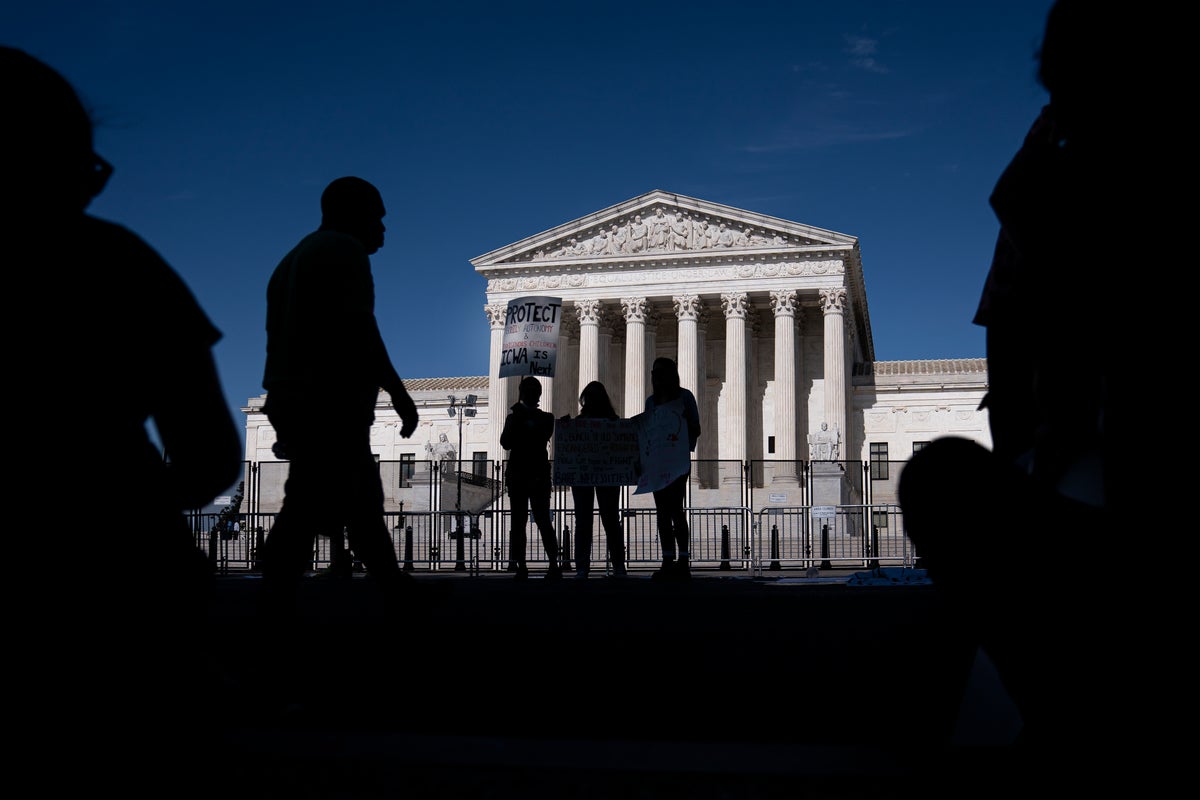
The US Supreme Court has reinstated a Republican-drawn congressional map in Louisiana that will be used in midterm elections after lower courts ruled that it was drawn in violation of the Voting Rights Act.
A judgment from the nation’s high court on 28 June allows a congressional map in Louisiana to stand, rejecting two lower court rulings that found the map likely violates the landmark civil rights law by diluting the voting strength of Black voters.
The brief order from the conservative-majority court – which did not include any reasoning – follows a similar judgment involving the newly drawn map in Alabama. The court’s three liberal Justices Stephen Breyer, Elena Kagan and Sonia Sotomayor dissented.
The latest order means that upcoming midterm elections for at least three seats in the US House of Representatives will be decided in districts with borders that likely violate the Voting Rights Act.
A 2013 ruling from the Supreme Court struck down federal “preclearance” guidelines that required states with histories of racial discrimination at the polls from implementing new elections laws without first getting federal approval. Last year, the court gutted another provision of the Voting Rights Act that makes it harder to challenge GOP-backed redistricting plans.
The latest redistricting cycle – the once-a-decade, nationwide redrawing of political boundaries based on the results of the once-a-decade US Census – is the first without those preclearance guidelines.
Three states that were previously covered by those requirements – Alabama, Georgia and Louisiana – have faced recent federal court challenges over their new maps.
In a 5-4 ruling in February, the Supreme Court reinstated Alabama’s map after judges rejected it; a furious dissent from Justice Kagan said the majority’s decision “does a disservice to Black Alabamians” who “have had their electoral power diminished – in violation of a law this Court once knew to buttress all of American democracy.”
Roughly 27 per cent of Alabama’s population is Black, though Black residents represent one of seven of the state’s congressional districts. That decision eliminated the creation of a second majority-Black district.
A federal judge in Georgia has also upheld the state’s GOP-drawn maps in March, likely allowing Republicans to gain another seat in Congress this fall and eliminating chances of creating a new majority-Black district.
Earlier this month, Florida’s Supreme Court gave the greenlight to a map pushed by Governor Ron DeSantis after voting rights advocates argued that the map violates the state’s anti-gerrymandering amendments in the state constitution.
Louisiana has six congressional districts, and roughly one-third of the state’s population is Black. The latest US Census found that the state’s Black population grew by nearly 4 per cent over the last decade, while its white population declined by 6.3 per cent.
But a congressional map approved by the state’s Republican-controlled legislature included only one Black-majority district.
The Supreme Court’s decision to reinstate that map follows a 152-page district court opinion alleging the map’s discrimination as well as a 33-page opinion from a conservative federal appeals court affirming the lower court.
Louisiana Governor John Bel Edwards called Tuesday’s decision “more than a little disappointing.”
“Black Louisianans make up one third of our population, and one third of our districts should be majority Black when such a map can be drawn, and, as has been demonstrated, that map is more compact, better adheres to the legal principles governing redistricting, and will perform,” he said.
Civil rights groups and nine voters in the state filed a lawsuit to challenge the map after Louisiana’s state legislature voted to override the governor’s veto.
Alora Thomas, senior staff attorney for the ACLU’s Voting Rights Project, said “to live up to the tenets of a representative democracy, the Louisiana congressional map must reflect the richly diverse population it serves.”
Stuart Naifeh, manager of the NAACP Legal Defense Fund’s redistricting project, called the Supreme Court’s decision a “blow to justice and fair representation that Black Louisianans have long fought for”.
“Two courts have looked at the facts and agree that Louisiana’s congressional map violates the Voting Rights Act, and that using it in the upcoming election will rob Black voters [of] their right to participate in the political process on an equal footing, he said.
“The Voting Rights Act was created precisely to prevent the kind of manipulation of district lines to undermine the voices and power of Black people that we see in Louisiana.”







